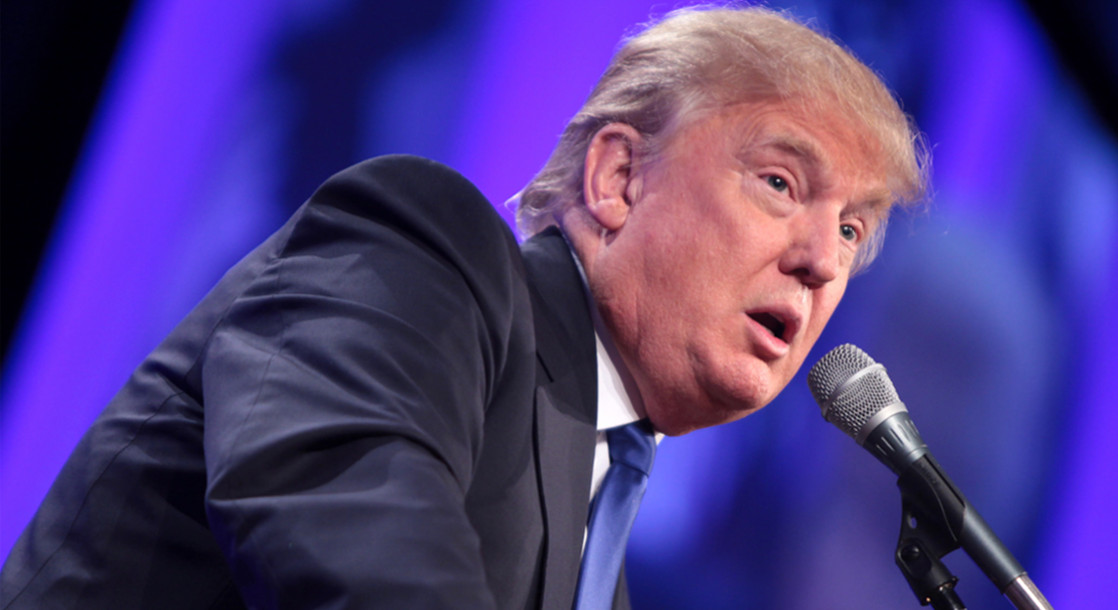What is the harm in your uncle sharing unhinged stories about Hillary Clinton being a carrier of the Plague or Barack Obama’s Muslim love child? Sure, it is annoys you, and even embarasses you when the unhinged fearmongering creeps into your feed in response to your innocuous post in support of Planned Parenthood, but what is the real harm?
As we’ve seen in recent months, the answer is that the damage can be immense.
The danger of fake news is not that people will believe it. Most fake news isn’t even designed to be believed. We’ve all seen shoddy Photoshops pop into our feed that no one in their right mind would take seriously. You had to look far and wide to find someone who truly believed Obamacare was going to set up death panels. Most fake news is about as believable as Lunar landing conspiracy theories.
The real danger is that the spread of fake news impacts the way that we interpret and respond to real news, both consciously and unconsciously. In a recent New York Times opinion piece, Michael Lynch put it like this: “Propagandists often don’t care whether everyone, or even most people, really believe the specific things they are selling (although it turns out that lots of people always do). They don’t have to get you to actually believe the penny is under the wrong shell. They just have to get you confused enough so that you don’t know what is true. That’s still deception.”
The game plan goes like this: First, the fake news is posted, then, media outlets dispute the fake news, then, those who find the fake news in their interest claim media is biased, and finally a space is created in the public imagination to doubt the media as a whole. This recent tweet from right-wing agitator and conspiracy theorist Mark Dice, calling out CNN as “fake news” shows the natural end of this cycle.
Why should he talk with fake news outlets like yours? Trump uses social media to communicate directly with the people. https://t.co/k4DcV7tTA9
— Mark Dice (@MarkDice) November 29, 2016
The creators of fake news may be mostly profit-driven, but aggregators and disseminators of fake news are partisans. Another Times piece found that a totally false tweet about “paid protestors” went viral thanks to conservative content mills and Facebook pages that have more interest in riling up their loyal base than fact-checking. These outlets realize that muddying the waters of the news casts doubt on the media as a whole and opens a lane for propaganda. As Lynch puts it, “Faced with so much conflicting information, many people are prone to think that everything is biased, everything conflicts, that there is no way to get out of the Library of Babel we find ourselves in, so why try?” Is it any surprise that this environment creates a country prone to low voter turnout and political apathy?
It isn’t hard to draw a line from this attitude toward the news and the public apathy towards Donald Trump’s innumerable scandals. Old-school journalists and politicians were constantly aghast at how the goalposts have moved this election season, quick to point out that Howard Dean was undone with a scream, yet Trump weathered the storm of accusations from his fraudulent university to accusations of sexual assaults. The narrative becomes “both candidates suck,” when in reality, one sucked far far worse. For every rigorous article from the Washington Post’s David Fahrenthold, there were three pieces from sites with names like “ConstitutionZone Newz” claiming Hillary was using Planned Parenthood as a national center for vaginal hypnosis.
Sadly, it doesn’t end there. If the limits of fake news were electing a petty would-be strongman, that might be something we could simply overturn in four years. Already, the response to fake news following the election has been even more troubling. Accusations of Russian interference in our election have been reported in a number of ways, with varying levels of truth. While the Kremlin’s support of Wikileaks seems feasible, accusations of physically tampering with voting machines are, to date, baseless. Liberals are falling back on fake news to soothe them in their time of need and it has been difficult for journalists to find the line between reporting on Russian interference in the election, and engaging in Cold War-style anti-Russian paranoia.
Many journalists feel that a recent Washington Post story crossed this line. In the piece, a list of fake news and propaganda sites generated by the website PropOrNot is trumpeted as a way to fight fake news. It turns out that PropOrNot isn’t exactly non-partisan, as it claims, and it is hard to tell exactly who these experts are. A report by the Intercept found that many outlets on the list were legitimate new sources, and that the only thing all the blacklisted sites had in common was their opposition to U.S. foreign policy in the era of centrist interventionism.
Not only has fake news helped elect President Trump, but now media sites on both sides of the aisle are guilty of using the term of “fake news” as a tool for partisan sniping, too. This isn’t to say that the Washington Post is the same camp as Mark Dice, but that this muddying of the waters has permeated American society. In the era of clicks and tribal sharing, there are precious few places that offer a rigorous accounting of what they put out onto the Internet.
So, what do we do next? Just as Donald Trump has ushered in a new era of vigilance for the American Left, this election has made it clear that consumers of news require a new level of vigilance. As the perception that all media is biased to the same degree becomes more and more widespread, a new level of responsibility dawns for writers and consumers alike. Should we argue with every crazy Infowars article our uncles and ex-gym teachers post on Facebook? Probably not. But, do we now have a responsibility to double-check our sources, push back against misinformation, and challenge the idea that all information is created equal? If we are interested in a world where facts matter, we do.
The solution, then, is no one solution. Snopes, Politifact, the New York Times, and the Washington Post can’t save us alone. Data, Nate Silver so painfully taught us this year, is not infallible, let alone an antidote to propaganda. If the Internet is going to be the utopian information marketplace that it is supposed to be, then we are going to have to be better consumers, sampling from various places and loudly pushing back against a bad product. Otherwise, we will be left with an Internet that looks like a garbage dump: plenty of choice, but nothing worth saving.











